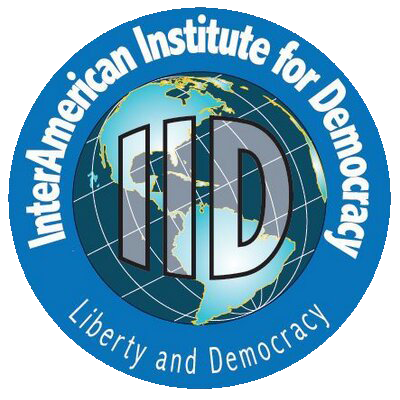Organized Crime and Politics in Latin America – Forum at the U.S. Congress

Share:
Miami, September 25 — On October 9, the InterAmerican Institute for Democracy, Universidad Austral, Florida International University (FIU), and Infobae will host a key forum on "Organized Crime and Democracy in Latin America" at the United States Congress in Washington, D.C. The event will take place from 10 a.m. to 1 p.m. (EST) in Room 200 of the U.S. Capitol Visitor Center and will be broadcast live in English, with simultaneous Spanish translation.
The forum will feature two panels, during which statesmen, officials, academics, and experts from across the Americas will analyze the state of organized crime and democracy in the region, presenting a series of case studies.
The designation of the Cartel de los Soles as a terrorist organization by the United States marked a turning point in U.S. foreign policy toward the Americas. It underscored not only how these criminal networks have fueled rising violence in recent years and pose a direct threat to continental security and democracies, but also the urgent need for action. In this context of growing tension—with strong backing from the governments of Argentina, Peru, Ecuador, Costa Rica, and the Dominican Republic, and sharp criticism from the “21st Century Socialism” of Cuba, Venezuela, Nicaragua, and Bolivia—the event will provide a platform for critical discussion.
The first panel will focus on detailed analyses of individual countries.
Researcher Douglas Farah will present his works Feudal Argentina and Transnational Criminal Convergence: Santiago del Estero, while Carlos Gervasoni, professor at Universidad Torcuato Di Tella, will examine the connection between organized crime and Argentine politics.
Former presidential candidate Ricardo Israel will analyze Chile’s challenges with transnational crime groups, and former Venezuelan chief of cabinet Beatrice Rangel will discuss the key role of the Chavista dictatorship in these networks.
FIU professor and political scientist Eduardo Gamarra will illustrate the penetration of criminal organizations in Bolivia over recent decades with his study Territories of Coca and Cocaine: Bolivia’s Drug Economy, Political Movements and Transnational Crime (2005–2025).
Dr. Juliana Velázquez Rodríguez will highlight Colombia’s transformation, focusing on Medellín—once the epicenter of drug trafficking in the 1980s and 1990s, but now the country’s leading tourist destination.
Former ambassador Ivonne Baki will evaluate Ecuador’s situation, while Mariano Federici, lawyer and director of K2 Integrity, will address financial crimes linked to these illicit structures.
Finally, U.S. Army War College professor Robert Evan Ellis will present his comprehensive assessment of the Americas, drawing on his extensive research on the subject.
Following the academic presentations, the second panel will bring together high-level political perspectives. Statesmen, former presidents, and U.S. senators and congress members will participate to discuss strategies and solutions.
For inquiries, interview requests or accreditation, please contact Inés Ehulech by email at ehulechpress@intdemocratic.org.
Press Department
Interamerican Institute for Democracy
ehulechpress@intdemocratic.org
(+1) 954-658-1691